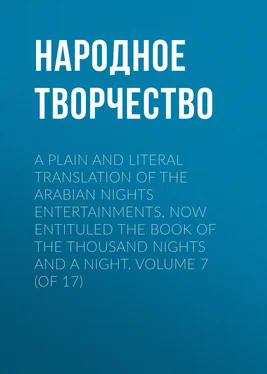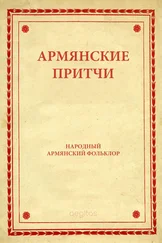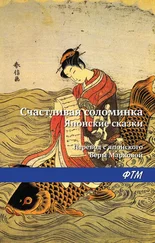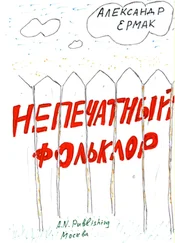Mr. Payne very reasonably supplants here and below Fakhr Taj (who in Night dcxxxiv. is left in her father’s palace and who is reported to be dead in Night dclxvii.) by Star o’ Morn. But the former is also given in the Bul. Edit. (ii. 148), so the story-teller must have forgotten all about her. I leave it as a model specimen of Eastern incuriousness.
There is some chivalry in his unwillingness to use the magical blade. As a rule the Knights of Romance utterly ignore fair play and take every dirty advantage in the magic line that comes to hand.
Arab. “Hammál al-Hatabi” = one who carries to market the fuel-sticks which he picks up in the waste. In the Koran (chapt. cxi.) it is applied to Umm Jamíl, wife of Mohammed’s hostile cousin, Abd al-Uzza, there termed Abú Lahab (Father of smokeless Flame) with the implied meaning that she will bear fuel to feed Hell-fire.
Arab. “Akyál,” lit. whose word (Kaul) is obeyed, a title of the Himyarite Kings, of whom Al-Bergendi relates that one of them left an inscription at Samarcand, which many centuries ago no man could read. This evidently alludes to the dynasty which preceded the “Tobba” and to No. xxiv. Shamar Yar’ash (Shamar the Palsied). Some make him son of Malik surnamed Náshir al-Ni’am (Scatterer of Blessings) others of Afríkús (No. xviii.), who, according to Al-Jannabi, Ahmad bin Yusuf and Ibn Ibdun (Pocock, Spec. Hist. Arab.) founded the Berber (Barbar) race, the remnants of the Causanites expelled by the “robber, Joshua son of Nún,” and became the eponymous of “Africa.” This word which, under the Romans, denoted a small province on the Northern Sea-board, is, I would suggest, A’far-Káhi (Afar-land), the Afar being now the Dankali race, the country of Osiris whom my learned friend, the late Mariette Pasha, derived from the Egyptian “Punt” identified by him with the Somali country. This would make “Africa,” as it ought to be, an Egyptian (Coptic) term.
Herodotus (i. 80) notes this concerning the camel. Elephants are not allowed to walk the streets in Anglo-Indian cities, where they have caused many accidents.
Arab. Wahk or Wahak, suggesting the Roman retiarius. But the lasso pure and simple, the favourite weapon of shepherd and herdsmen was well-known to the old Egyptians and in ancient India. It forms one of the T-letters in the hieroglyphs.
Compare with this and other Arab battle-pieces the Pandit’s description in the Kathá Sarit Sagara, e.g. “Then a confused battle arose with dint of arrow, javelin, lance, mace and axe, costing the lives of countless soldiers (N.B.—Millions are nothing to him); rivers of blood flowed with the bodies of elephants and horses for alligators, with the pearls from the heads of elephants for sands and with the heads of heroes for stones. That feast of battle delighted the flesh-loving demons who, drunk with blood instead of wine, were dancing with the palpitating trunks,” etc., etc. Fasc. xii. 526.
The giraffe is here mal-placé: it is, I repeat, one of the most timid of the antelope tribe. Nothing can be more graceful than this huge game as it stands under a tree extending its long and slender neck to the foliage above it; but when in flight all the limbs seem loose and the head is carried almost on a level with the back.
The fire-arms may have been inserted by the copier; the cross-bow (Arcubalista) is of unknown antiquity. I have remarked in my book of the Sword (p. 19) that the bow is the first crucial evidence of the distinction between the human weapon and the bestial arm, and like the hymen or membrane of virginity proves a difference of degree if not of kind between man and the so-called lower animals. I note from Yule’s Marco Polo (ii., 143) “that the cross-bow was re-introduced into European warfare during the twelfth century”; but the arbalest was well known to the bon roi Charlemagne (Regnier Sat. X).
In Al-Islam this was unjustifiable homicide, excused only because the Kafir had tried to slay his own son. He should have been summoned to become a tributary and then, on express refusal, he might legally have been put to death.
i.e. “Rose King,” like the Sikh name “Gulab Singh” = Rosewater Lion, sounding in translation almost too absurd to be true.
“Repentance acquits the penitent” is a favourite and noble saying popular in Al-Islam. It is first found in Seneca; and is probably as old as the dawn of literature.
Here an ejaculation of impatience.
i.e. “King Intelligence”: it has a ludicrous sound suggesting only “Dandanha-i-Khirad” = wisdom-teeth. The Mac. Edit. persistently keeps “Ward Shah,” copyist-error.
i.e. Fakhr Taj, who had been promised him in marriage. See Night dcxxxiii. supra , vol. vi.
The name does not appear till further on, after vague Eastern fashion which, here and elsewhere I have not had the heart to adopt. The same may be found in Ariosto, passim .
A town in Persian Irak, unhappily far from the “Salt sea.”
“Earthquake son of Ennosigaius” (the Earthquake-maker).
Arab. “Ruba’al-Kharáb” or Ruba’al-Khálí (empty quarter), the great central wilderness of Arabia covering some 50,000 square miles and still left white on our maps (Pilgrimage, i. 14).
Pers. “Life King,” women also assume the title of Shah.
Arab. “Mujauhar”: the watery or wavy mark upon Eastern blades is called the “jauhar,” lit. = jewel. The peculiarity is also called water and grain, which gives rise to a host of double-entendres , puns, paronomasias and conceits more or less frigid.
Etymologically meaning tyrants or giants; and applied to great heathen conquerors like Nimrod and the mighty rulers of Syria, the Anakim, Giants and other peoples of Hebrew fable. The Akásirah are the Chosroës before noticed.
Arab. “Askar jarrár” lit. “drawing”: so in Egyptian slang “Nás jarrár” = folk who wish to draw your money out of your pocket, greedy cheats.
In Turkestan: the name means “Two lights.”
In Armenia, mentioned by Sadik Isfaháni (Transl. p. 62).
This is the only ludicrous incident in the tale which justifies Von Hammer’s suspicion. Compare it with the combat between Rustam and his son Sohráb.
I cannot understand why Trébutien, iii., 457, writes this word Afba. He remarks that it is the “Oina and Riya” of Jámí, elegantly translated by M. de Chezy in the Journal Asiatique, vol. 1, 144.
I have described this part of the Medinah Mosque in Pilgrimage ii, 62–69. The name derives from a saying of Mohammed (of which there are many variants), “Between my tomb and my pulpit is a garden of the Gardens of Paradise” (Burckhardt, Arabia, p. 337). The whole Southern portico (not only a part) now enjoys that honoured name and the tawdry decorations are intended to suggest a parterre.
Читать дальше












